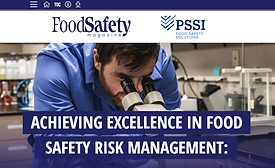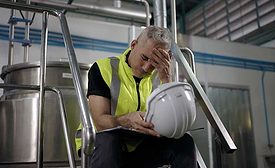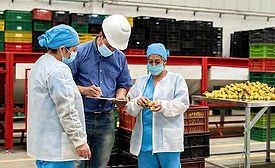Home » food safety culture
Articles Tagged with ''food safety culture''
Listeria outbreaks often result from failures in both food safety systems and organizational culture, leading to widespread contamination and illness
Read More
Sponsored Content
eBook | Food Safety Solutions for Meat and Poultry Producers
March 13, 2025
Quality, SQF, and the Importance of Changing Food Safety Behaviors
Even though the rules seem to state that food safety is all about documentation, in principle, all of the regulations and guidelines point to a requirement for behavior change
February 13, 2025
Mission Critical: Cultivating a Culture of Food Safety Excellence
For a future of food safety excellence, companies must reimagine leadership competencies and focus on human skills
July 1, 2024
Pathways to Implementing Food Systems Capacity Building Programs for Smallholder Farmers: Major Constraints and Benefits
Are these programs reaching the smallholder farmers most in need?
June 28, 2024
Sponsored Content
eBook | Achieving Excellence in Food Safety Risk Management: Tackling Chemical and Microbiological Threats
June 20, 2024
Where Food Safety Systems and Culture Collide: Do You Know Your Company's Psychosocial Risks?
Psychosocial risks become important to food safety when they have the potential for causing psychological or physical harm, and when they lead to deficiencies in expected food safety behaviors
April 9, 2024
Food Safety Culture and the Local Food Movement
To what extent do established food safety culture cornerstones apply to the local foods segment of the food industry?
February 13, 2024
Never miss the latest news and trends driving the food safety industry
eNewsletter | Website | eMagazine
JOIN TODAY!Copyright ©2025. All Rights Reserved BNP Media.
Design, CMS, Hosting & Web Development :: ePublishing












